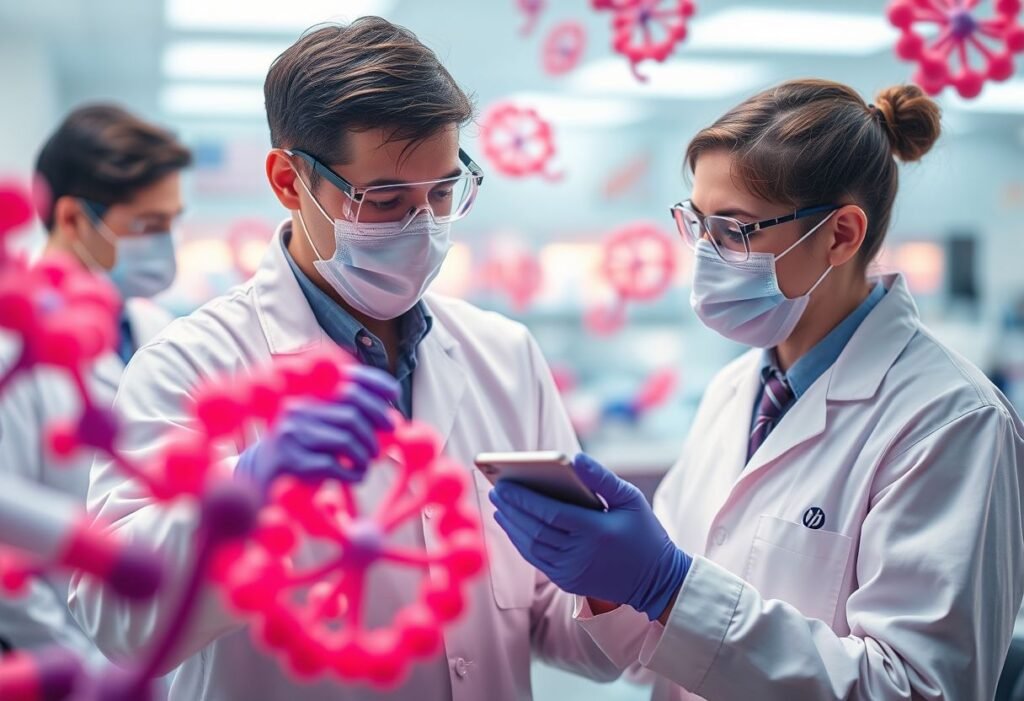Biotechnology is revolutionizing the field of drug development by bringing innovation and precision to treatments. As new technologies emerge, they enable researchers to create therapies that are more effective and tailored to individual patients. This article explores the profound impact of biotechnology on drug development and the innovations that are driving this change.
The Role of Biotechnology in Modern Medicine
Biotechnology plays a critical role in modern medicine by utilizing biological processes for the development of drugs and therapies. One of the most significant advancements in this field is the engineering of proteins and other biomolecules. These innovations allow for the design of more specific biopharmaceuticals that target disease mechanisms directly. For instance, monoclonal antibodies have become essential in treating various cancers and autoimmune disorders. By harnessing the power of genetic engineering, biotech companies can now manipulate biological pathways to enhance the body’s natural defenses and develop personalized medicine, leading to improved patient outcomes.
Innovative Drug Delivery Systems
Recent advancements in drug delivery systems have transformed how medications are administered and absorbed in the body. Innovations such as nanoparticles and liposomes have enabled sustained release of drugs, enhancing their efficacy and minimizing side effects. These systems allow for controlled delivery of therapeutics directly to targeted tissues, increasing the drug’s effectiveness. Additionally, the development of oral biologics and transdermal patches has simplified administration, encouraging patient compliance and improving overall treatment success. Biotechnology continues to pioneer new methods that enhance how we deliver drugs to patients.
Precision Medicine and Genomics
Precision medicine is rapidly changing the landscape of drug development by focusing on the genetic makeup of patients. Advances in genomics enable researchers to identify specific genetic variations that influence a patient’s response to therapy. This understanding leads to the development of targeted treatments that are tailored to individual needs, resulting in a higher probability of success. The integration of genetic information into clinical trials also helps in identifying suitable candidates, which accelerates the drug approval process. Overall, precision medicine is fostering innovation in how we approach the treatment of diseases.
Regenerative Medicine and Cell Therapies
Regenerative medicine, including cell therapies, is another frontier where biotechnology is making significant strides. Cellular therapies, such as stem cell transplants, are at the forefront of treating degenerative diseases and injuries. These treatments harness the body’s own repair mechanisms, promoting healing and regeneration. Regulatory bodies are increasingly recognizing the potential of regenerative approaches, helping to expedite the development and approval of these therapies. With ongoing research and clinical trials, regenerative medicine is paving the way for innovative solutions to conditions once deemed untreatable.
Artificial Intelligence in Drug Discovery
Artificial intelligence (AI) is becoming an integral part of drug discovery, facilitating the identification of potential drug candidates faster and more efficiently than traditional methods. By analyzing vast datasets, AI algorithms can predict the interactions between drugs and their targets, significantly reducing the time and cost of the development process. Companies are leveraging machine learning techniques to optimize lead compounds, assess drug safety, and even personalize treatment regimens based on patient data. The synergy between biotech and AI is a promising frontier in drug development, enhancing innovation.
The Future of Drug Development in Biotechnology
Looking ahead, the future of drug development in biotechnology appears bright, fueled by constant innovation and discovery. Emerging therapies, such as CRISPR gene editing, have opened new doors for treating genetic disorders at their core. Furthermore, advancements in biosensors and wearables harnessing biotechnology will enable real-time monitoring of patient responses, leading to timely adjustments in therapies. As the world continues to battle complex diseases, the fusion of biotechnology and innovation remains crucial in developing effective drugs that improve health outcomes and quality of life for patients worldwide.
Disclaimer: This article is for informational purposes only and should not be considered medical advice.





















